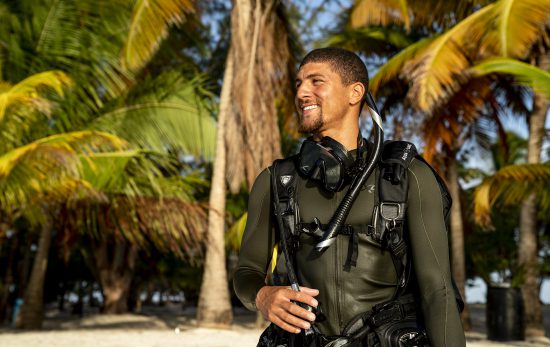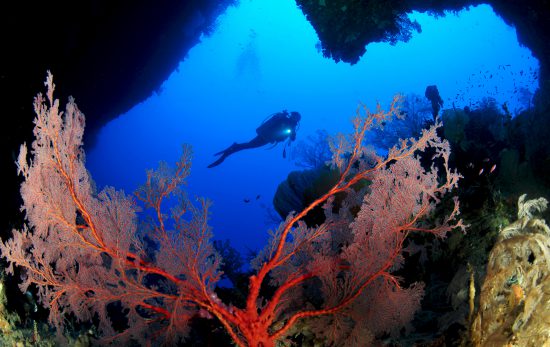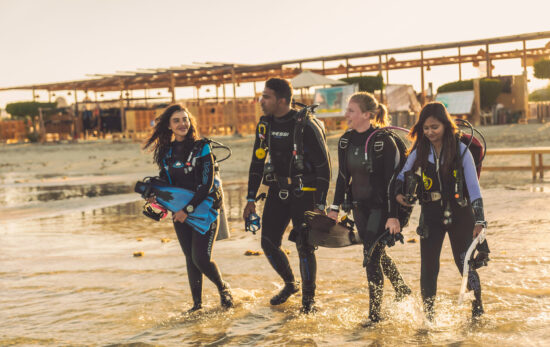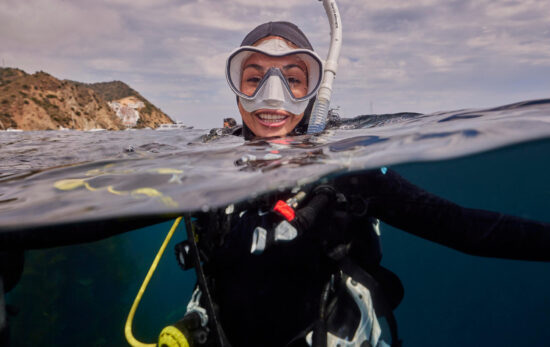Because scuba diving is a buddy system sport, it is natural to dream of sharing our passion with our dearest friends. However, we can sometimes forget how we felt before our Open Water Diver certification and all the things we learn dive after dive. So, when trying to get your friends into scuba diving, there are a couple of things to keep in mind.
This summer, a friend of mine came to spend a week of holiday in the south of France with me. I offered her the opportunity to try scuba diving in my favourite spot there, Porquerolles Island. At first, I was surprised she immediately said yes. However, the day before her Discover Scuba Diving session, she started to express concerns about the experience. I prepared a refreshing ice tea, sat down with her and we went through all the things that could cause her stress. That discussion inspired this article.
So, what shouldn’t we do?
Tell your friend scuba diving is easy
While I agree, in the end, recreational diving is not rocket science, at the very beginning, learning the basics can be overwhelming. Try to remember how you felt at your Open Water training. Most of us didn’t master skills like hovering or mask removal the very first time we tried. We may see it as easy now because we’ve had the opportunity to practice these skills many times.
What to do instead?
Tell them the point of the DSD is not to learn everything; the instructor will handle almost everything for them. The experience is about relaxing and discovering the sensation of breathing underwater. Then, if they enjoyed their first dive, they could sign up to the Open Water Diver course. There is no need to over-stress them with detailed knowledge of how a BCD works or how to do a mask removal properly. Reduce the mental charge by keeping things simple. And remember, their PADI dive professional is trained in teaching these skills.
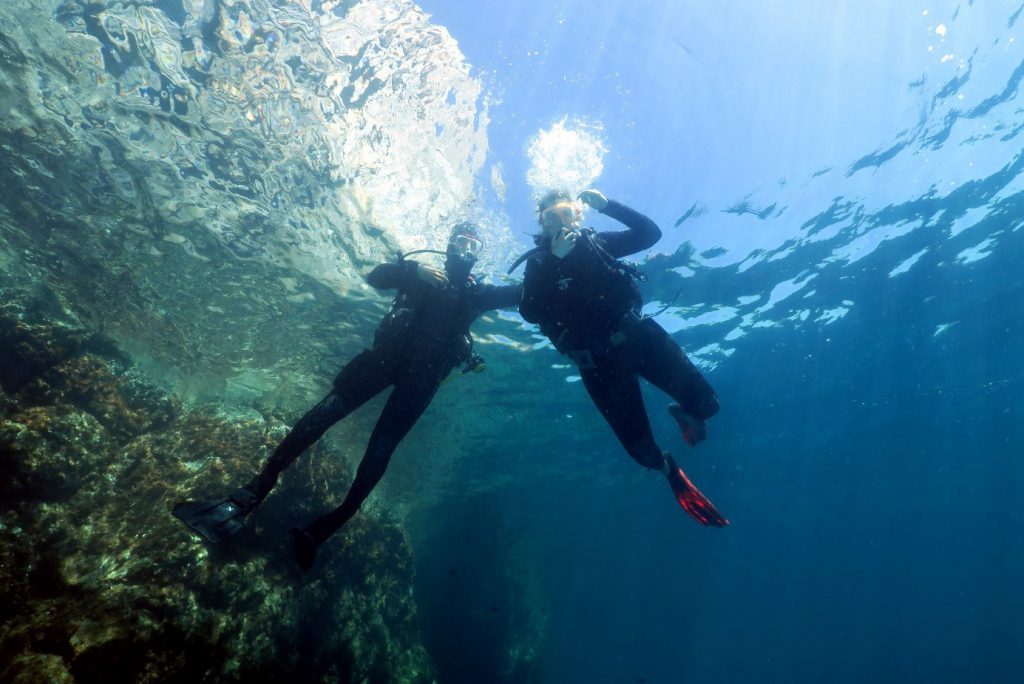
Deny their fears
When I’m meeting non-divers for the first time, and they learn my life revolves around scuba diving, they often directly share with me their fear of trying. The top two reasons I usually hear are:
- The fear of going at depths where they can’t stand anymore. In other words, it’s the fear of drowning
- The fear of the fish, which I understand is about being touched by something they can’t see. In other words, the fear of the unknown.
Addressing these fears without empathy won’t lead you anywhere, and worse, can create a block for your friend. We are all afraid of something.
What to do instead?
If your friend is not a confident swimmer, it might be a good idea to work on this together before pushing too hard to try scuba diving. If marine life is a concern, why not go through some of your best underwater pictures to show them the beauty of the underwater world? Tell them once underwater, through the mask, they will see everything.
Offer to go with them underwater. I had the opportunity to do it twice for friends of mine, so far no instructor has refused to join (Editor’s note: allowing another diver to observe a DSD is at the instructors discretion, as they are responsible for all divers). I always respect a minimal distance to let the instructor do their job. My friends were happy I was there, quick eye contact can mean the world to someone a bit stressed by this new experience.
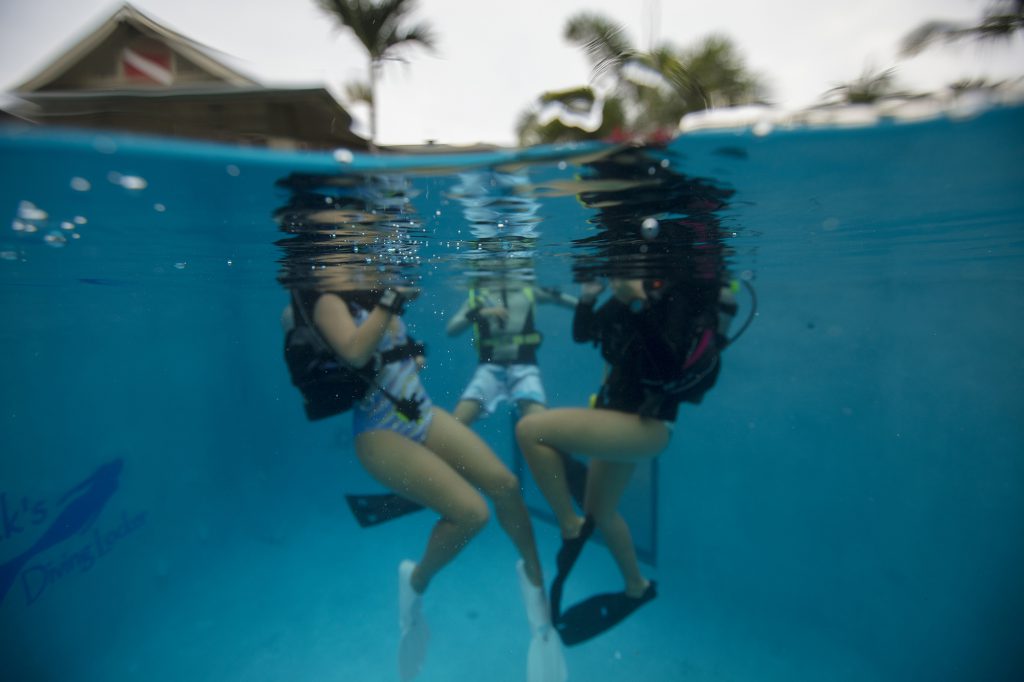
Tell them they must have done something wrong
Sometimes people tried diving once, and it didn’t go well. There can be thousands of reasons for it but telling them they must have missed something isn’t going to help. One concern most aspiring divers have is the pain they feel in their ears, maybe it’s something they’ve felt when they tried to swim underwater at the beach or in their local swimming pool. Because equalising becomes almost second nature to divers, it’s easy to forget that this is not a skill we possess by instinct. If people felt pain at any point it’s important to be listening about what happened.
What to do instead?
I usually start by saying that ear equalisation is the one skill they will practice as a priority with their instructor. It is key to making the experience enjoyable. I usually follow by explaining that the capacity to equalise our ears depends on people, and there is a range of techniques to achieve the same result that will work better for certain persons.
“It’s so peaceful down there.”
These were the first words my friend told me with sparks in her eyes as we had just surfaced. I couldn’t be happier to finally share with her the whole reason why I spend as much time as I can underwater.
Author Bio
Florine is a PADI Divemaster and a Dive Travel blogger at World Adventure Divers. She dives in tropical to extreme cold waters, selecting her destinations when both adventure diving and cultural discoveries are part of the journey, and showing you how to do it without breaking the bank.
